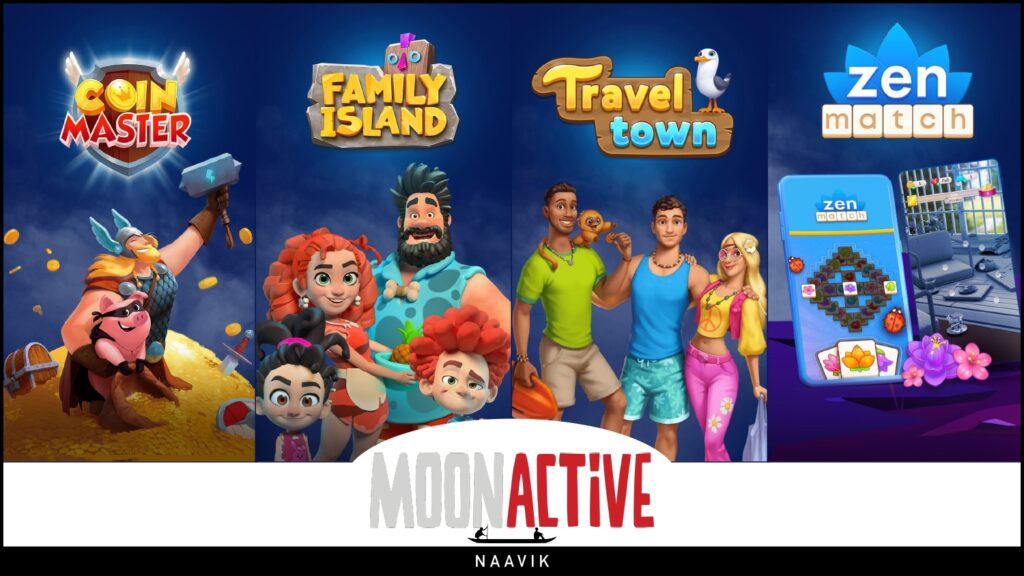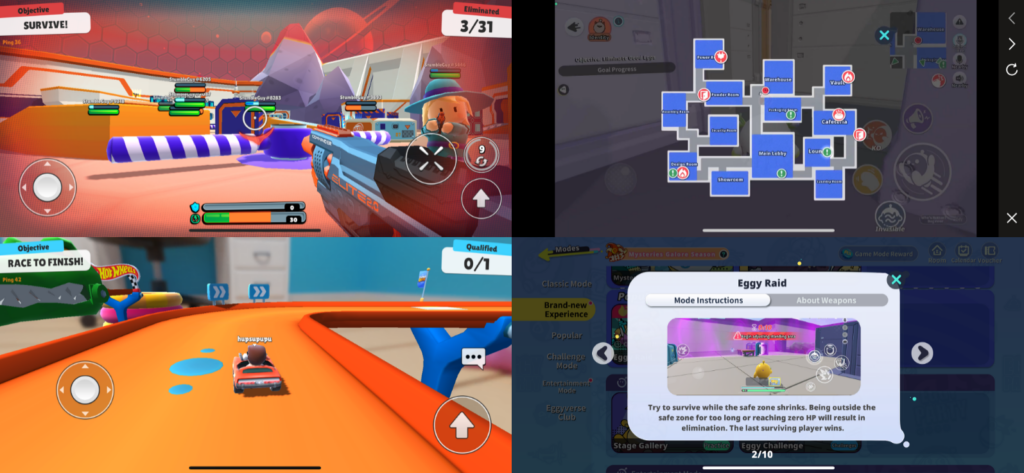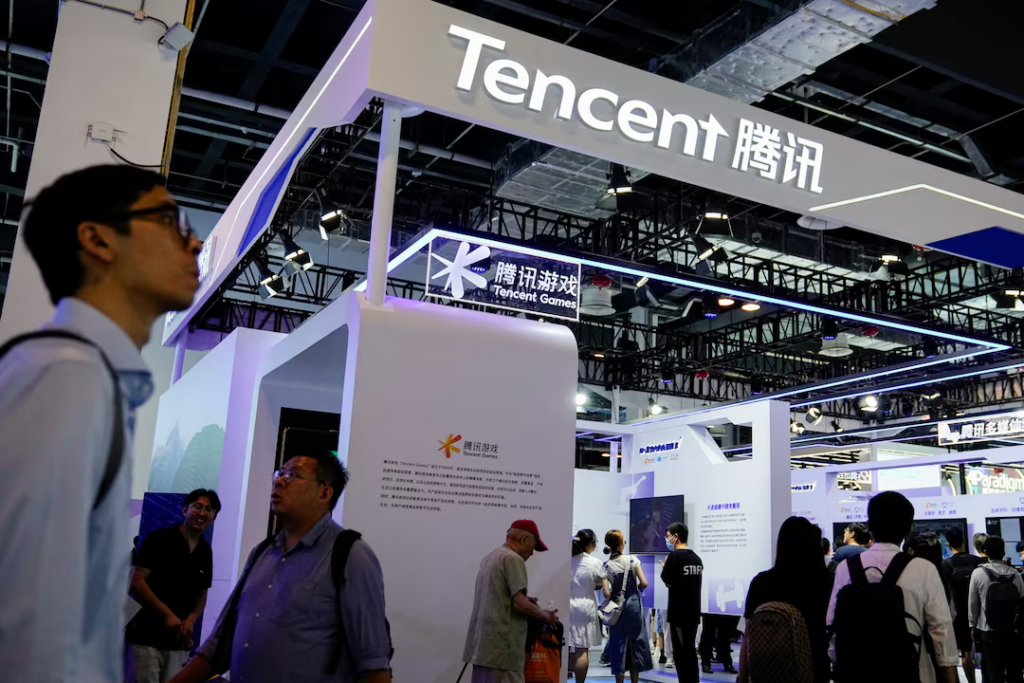Hi Everyone. With Gamescom a little over a week away, we’d love to meet up at the event to chat about partnerships, consulting, Naavik Pro, sponsorships and more! Aaron, Thomas, and Manyu will be at the event on Day 1 (August 24th) and if you'd like to chat, please submit your request using the form below — even if it’s for a quick hello! We will reach back out and set up time with you shortly thereafter.
This Week on The Metacast
Unity’s Love Triangle & Blizzard’s Breakup — In this week’s Metacast Roundtable, Matt Dion, Joost van Dreunen, and David Amor, join your host Maria Gillies to discuss:
-
Blizzard & NetEase Cancel WoW Mobile Game: Why was the World of Warcraft mobile game canceled?
-
AppLovin x Unity Merger Proposal: Will Unity swap ironSource for a merger with AppLovin?
-
Gaming Accessories Market: Will the gaming accessories market survive in a post-pandemic world?
-
Microsoft x Unity Partnership: Why aren’t there more game engine competitors?
You can find us on YouTube, Spotify, Apple Podcasts, Google Podcasts, YouTube, our website, or anywhere else you listen to podcasts. Also, remember to shoot us any questions here.
#1: Unity Reports Earnings
Unity has perhaps one of the more interesting narratives in and around this earnings season. Separately from its quarterly results, it announced a merger with IronSource for $4.4B. Most recently, AppLovin put in a $20B competitive bid to merge with Unity (including a beefy $150M termination fee on Unity’s end) prior to Unity’s earnings call. In AppLovin’s proposed merger, Unity would own 49% vs. Unity owning 73.5% of the combined entity with IronSource — it might just come down to what role CEO John Riccitello wants.
One thing’s for certain, Apple’s IDFA changes have blown strong headwinds at all three companies. AppLovin has been underperforming expectations, IronSource revenue is actually up 35% QoQ but continues to deal with backlash malware problem, and Unity’s Operate Solutions division (ad monetization) is down -13% YoY (from self-inflicted bad data). In speaking about the IronSource deal in the earnings call, management notes a $1B potential EBITDA run-rate of the combined entity by EOY 2024:
“Our combined company [ironSource & Unity] is expected to reflect a roughly 50-50 revenue mix between our creation and growth technologies and services. Our intent is to unite the work of creating content and engaging users in one interim process where data flows from the growth platform in the creation process and makes the game better. It will start with a piece of content, perhaps a single level for a mobile game. That level will be married with sophisticated tools for user acquisition creative tests to enable a creator and their growth experts to understand and learn from very early indications of user engagement, modernization and the cost to acquire a user and the engagement and where relevant, the LTV of that user.”
The reality is that Unity remains the coveted prize among both companies, a ‘love triangle’ as my colleagues so aptly described it on the Metacast. AppLovin is much larger than IronSource (~$13.75B market cap vs. $4.1B), has a games portfolio, and would remain in control of the combined entity; however, while IronSource is much smaller, it is growing at an impressive 60% YoY clip (compared to AppLovin’s 16% YoY growth) and the combined entity would have a near zero debt to capital ratio vs. ~30% with AppLovin. There are reasons to love and hate both ideas, but it also stands that both have the #1 and #2 mediation tools (ad monetization platform, optimizing ad inventory through bidding) that Unity failed to build internally. Both are attracting tech stacks for Unity so now it’s about finding the right deal.
For Unity, the business model relies on both building an app and monetizing it — the latter is the profitability driver for the company. This is why any merger with a mediation tool is a strategic lever.
Source: Naavik
The good:
-
Unity’s Create Solutions (Unity engine) continues to grow at a rapid clip (66% YoY). In Q2 2022, non-games businesses constituted 40% (up from 25% in FY 2021) of Create Solutions’ revenue even as the company’s games business grew. That’s a huge strategic win for the company and I expect it to lean more into non-games businesses as they ramp up go-to-market efforts. In the earnings transcript, the head of Create Solutions cited a construction company, a content production agency, and the US military as clients of Unity — a diverse array of use cases.
-
The quality data issue that plagued last earnings report seems to be fixed but it will take time to retrain their models. While Operate solutions suffered some reputational damage from the bad data, this seems to be mostly mitigated. The company expects a 50/50 revenue split between Operate and Create Solutions in the longer term with the addition of ironSource. I always expected Operate Solutions to be larger since it’s the part that will scale more with mediation tech (and it was already a larger line). This will be an interesting data point to track.
-
1,085+ customers now drive $100K+ in revenue each year, up from 716 in Q2 2020. Interestingly, UGS, which is a pay-to-use mode, is seeing traction and should drive a favorable revenue mix for Unity / be a net-positive for developers (particularly smaller ones).
Source: Naavik
The bad:
-
The company cited macroeconomic conditions and data quality (now fixed) as the main drivers behind Operate Solutions’ revenue decline. There’s reason to be optimistic as the company has taken concerted steps toward addressing this with the proposed mediation merger, and $1B+ in proposed EBITDA by EOY 2024. I’m skeptical of this, but let’s see if they can make it work!
-
Unity has a solid China business, but it’s not as big as a I thought it was. Management spun off the China division (presumably because of regulatory concerns) and will report it as consolidated earnings, but it’s unclear beyond their strategic partnerships with some of the larger tech companies there how they’ll accomplish a successful GTM. This business drove $50M in revenue last year.
-
While the Weta acquisition seems to be integrating fairly rapidly (and Create Solutions has seen benefit), consensus is out that Unity may have overpaid for this deal. It’ll take a long time for this integration to bear fruit and management spent a lot of time justifying progress in this earnings report to get shareholders hyped. I’m not sure they did.
Unity’s mission is to empower content creation and creator success. If anything, Unity sits in a favorable position as an enabler of app development in addition to its monetization division. A merger only serves to bolster this vision in the right direction. Now, all eyes will be on how Unity & AppLovin react to the proposed bid. While I don’t think anything will happen, we’ll likely get clarity on Unity’s end relatively soon. The decisions that ensue might incentivize other players to step up. (Written by Fawzi Itani)
#2: Weekly News Roundup
Source: Benzinga
Roblox Earnings: Earlier this week UGC-heavyweight Roblox reported its second quarter results, missing analyst expectations on both the top and bottom line. The company reported a 4% YoY decrease in bookings and a drop in DAUs for the first time since it began reporting the metric in Q2 2019. The news isn’t surprising — the platform was undoubtedly one of gaming’s biggest beneficiaries from the industry-wide pandemic boost, and is not the only company facing near-term challenges. However, a look under the hood shows the company’s investment-first mindset continues to pay dividends. This quarter saw all-time high investments in employee growth and infrastructure investment. Meanwhile its international audiences are rapidly growing to rival North America in size, with DAUs in Europe and Asia pacing to nearly double their 2021 figures. Additionally, the company’s initial user base is seemingly aging up with the platform. Despite a largely down quarter, it still very much feels like it’s early innings for the industry-leader.
Nexon Earnings: In contrast to Roblox, Nexon reported record-breaking revenues earlier this week, with a 50% YoY increase in Q2. Exceeding outlook, net income also grew a whopping 176% YoY to nearly $183 million. The results are a mix of favorable economic positions and better than expected outcomes from the company, with only 37% of the company’s revenues coming from outside Korea and Japan (which both faced deprecating currencies over the previous quarter). On the game front, FIFA Online 4 broke its all-time revenue record (which was set last quarter), and saw a 30% YoY increase in revenue generated from North America, a target region for the company. The strength in results feels like a new chapter for the company that has historically prioritized building growth through standout IP like MapleStory and China’s Dungeon&Fighter. The company is in a great position to expand outside of Asia on the back of strong earnings, and has cash on hand to approach that growth through a multitude of approaches (whether that be M&A or building its own in-house studio in the West).
🎮In Other News…
📊Funding & Acquisitions:
-
Earnings: Unity | AppLovin | IronSource | Playtika | Nexon | Roblox | Take-Two | Nvidia
-
Spin Master acquired Nørdlight. Link
📊Business:
-
AppLovin submitted a $20B bid to merge with Unity ahead of Unity’s earnings. Link
-
Nvidia had a 33% drop in gaming revenue. Link
-
Microsoft and Unity announced an Azure partnership. Link
-
In a survey by Meta, 93% of mobile game developers cited in-game ads as a crucial monetization strategy. Link
-
Xbox fired back at Sony’s claim on Activision exclusives, saying they pay for blocking rights. Link
🕹Culture & Games:
-
BioWare’s romance bundle. Link
-
Board games from Gen Con. Link
-
Rec Room released its latest original game. Link
-
Multiversus hit 10M players. Link
👾Miscellaneous Musings:
-
Multi-token games are trouble. Link
-
A report on youth gamers in China. Link
-
Writing for games (Pt. 1). Link
🔥Featured Jobs
-
a16z: Investment Team Analyst (Remote)
-
Disney: Business Games Analyst (Remote)
-
Hidden Leaf Games: Product Manager (Remote)
-
Naavik: Content Contributor (Remote)
-
Naavik: Games Industry Consultant (Remote)













